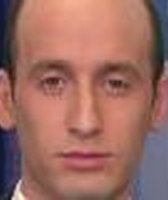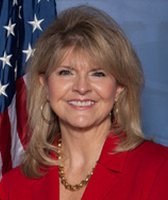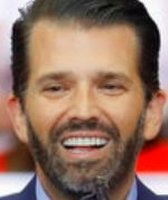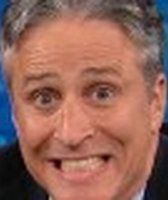Stand up for the facts!
Our only agenda is to publish the truth so you can be an informed participant in democracy.
We need your help.
I would like to contribute
U.S. Rep. Alan Grayson, who in 2009 described the GOP health care plan as "if you do get sick, die quickly," is reaching into his bag of old talking points to defend the Affordable Care Act.
During a recent interview, the Florida Democrat offered a feverish defense of the health care law and one of its most critical components, a requirement that most everyone acquire health insurance.
"We have 45,000 people in this country who are dying each year because they don't have health coverage," Grayson said. "The Affordable Care Act provides coverage to virtually all of them, and the Republicans … want to stop it. I think it's horrifying."
We wondered what you probably did: Are 45,000 people dying each year because they have no health coverage?
What we found wasn’t enough to reach a conclusion one way or another (hence why we’re not rating Grayson’s statement on our Truth-O-Meter). But we still believe the issue and background of Grayson’s claim is worthy of scrutiny.
It comes from a 2009 American Journal of Public Health study, which concludes almost exactly what Grayson said, with a bit softer language. "Lack of health insurance is associated with as many as 44,789 deaths in the United States, more than those caused by kidney disease."
The figure received a lot of media attention during the national debate over health care reform in 2009, as it was more than twice previous estimates. A team of six researchers from the Department of Medicine at Cambridge Health Alliance, which is affiliated with Harvard Medical School, used their findings to push for universal health care coverage. (Two of the researchers co-founded Physicians for a National Health Program, which advocates for a single-payer health system.)
The report builds upon a trail of research trying to answer the same question: What role does health insurance play in a person’s death?
Researchers working with the National Academy of Sciences in 2002 found that uninsured residents often delay or abstain from screenings and treatment for cancer or chronic diseases, and they lack access to medications that treat conditions like hypertension or HIV. The researchers estimated 18,000 people between ages 25 and 64 died in 2000 because they did not have health insurance. (People age 65 and older are eligible for health insurance through Medicare.)
That team leaned on a 1993 study published in the Journal of the American Medical Association, which concluded that not having insurance makes a person 25 percent more likely to die than someone who has it. The 1993 finding came after examining federal medical data throughout 1971-87.
In other words, the data was pretty old by the time researchers picked it up for the 2002 report. That’s one of the critiques of it and others that have used the data since.
The 2009 study
Back to the study that is the basis for Grayson’s comment. That 2009 report determined that people without insurance are 40 percent more likely to die without insurance, up from 25 percent in studies we mentioned above.
Dr. Steffie Woolhandler, a visiting professor of medicine at Harvard Medical School and one of the six authors who penned the study, told us one criticism has always been that it is not possible to prove causation, or that someone dies because they do not have insurance, from this kind of observational analysis. But experiments on health insurance are not really done, she said.
Limitations of their study include not knowing if the individuals who participated in the federal survey obtained coverage after their initial interview, or for how long they had it, plus a number of other unmeasured characteristics.
Still, their work stands out from previous efforts because it used more recent survey data and presented a more apples-to-apples analysis between the uninsured and insured populations. For example, it compared deaths rates for uninsured smokers with insured smokers, as well as other factors such as drinking, obesity, income and education.
The Harvard-affiliated researchers expanded the age group used in earlier studies to account for more young adults. Counting one way, by applying the death rate to age brackets, the researchers said 35,327 adults between the ages of 18 and 64 died due to not having insurance in 2005. The number of deaths rose to 44,789 without breaking it down by age groups.
Urban Institute senior fellow Stan Dorn, who studied the issue in 2008 and concluded 22,000 people died in 2006 because of a lack of health insurance, said the updated analysis appears sound.
"It makes sense that as time goes by that health insurance coverage has greater impact on health outcomes," he said.
The case against estimates like this
There are not many specific arguments against Grayson’s specific number -- 45,000.
But because that estimate is built off the work of earlier, lower estimates, we think previous criticisms are still germane.
The biggest? It’s impossible to know precisely how many people die from having no insurance. There’s no national data for it.
Richard Kronick, a University of California San Diego medical professor who now works for the Department of Health and Human Services, wrote in 2009 that estimates are "almost certainly incorrect."
His paper, published in August 2009 in HSR: Health Services Research, found that uninsured participants had no different risk of dying than those were covered by employer-sponsored group insurance. The finding was surprising coming from Kronick, who told PolitiFact then it was "not the answer I wanted."
Kronick, recently named director of the Agency for Healthcare Research and Quality, said he does not doubt the overall point that having no insurance takes a toll on a person’s health. (Kronick was out of the office as we worked on this fact-check and could not be reached.)
Health policy experts across the political spectrum told PolitiFact in 2009 that Kronick’s critique was credible. And John Goodman, president of the conservative National Center for Policy Analysis, testified before Congress that year that we "do not know how much morbidity and mortality is attributable to lack of health insurance."
Katherine Baicker, a Harvard University health economics professor, echoed that it’s hard to get good evidence for a connection between lacking insurance and dying. The uninsured often earn less money than those who have insurance, she said, and poverty is associated with worse health.
"So when you see that the uninsured have higher mortality, you don't know whether it is because they are uninsured or because they are lower income," Baicker said.
Henry Aaron, a senior fellow at the centrist-to-liberal Brookings Institution, told us in an interview that he, too, thinks the number of deaths is impossible to nail down. In addition to Kronick’s skepticism, he pointed to a study of Oregon’s Medicaid experiment (which Baicker co-authored and PolitiFact looked at here) that found no significant improvement in health outcomes, including conditions like blood pressure, cholesterol and blood sugar, between a group of new Medicaid enrollees and uninsured Oregonians who could not get on the Medicaid rolls.
"Like Kronick, I am a strong advocate of measures to achieve universal insurance coverage and would rather that Kronick’s study and the Oregon project provided evidence in support of my policy preference," he said. "But, as far as mortality is concerned, they just don’t."
Our Sources
Interview with Todd Jurkowski, Grayson spokesman, Aug. 27, 2013
Interview with Jennifer Walsh, Institute of Medicine spokeswoman, Aug. 27, 2013
Interview with Dr. Steffie Woolhandler, professor in the CUNY School of Public Health at Hunter College and visiting professor of medicine at Harvard Medical School, Aug. 28, 2013
Interview with Henry Aaron, Brookings Institution senior fellow, Aug. 29, 2013
Interview with Stan Dorn, Urban Institute senior fellow, Aug. 29, 2013
Interview with Craig Palosky, Kaiser Family Foundation spokesman, Aug. 29, 2013
Interview with Katherine Baicker, Harvard School of Public Health health economics professor, Aug. 29, 2013
PolitiFact, "Pascrell says up to 22,000 Americans die yearly because they don’t have health ,insurance," Aug. 20, 2009
PolitiFact Virginia, "Do people without health insurance die sooner?" July 12, 2011
PolitiFact, "Is new study of Medicaid a game-changer?" May 3, 2013
FactCheck.org, "Dying from lack of insurance," Sept. 24, 2009
Institute of Medicine, "Care without coverage: too little, too late," May 2002
Institute of Medicine, "Insuring America’s Health: Principles and Recommendations," 2004
Urban Institute, "Uninsured and dying because of it," January 2008
American Journal of Public Health, "Health insurance and mortality in U.S. adults," December 2009
Paper by Richard Kronick, Department of Family and Preventative Medicine at the University of California (San Diego) School of Medicine, "Health insurance coverage and mortality revisited," April 2009
Harvard Gazette, "New study finds 45,000 deaths annually linked to lack of health coverage," Sept. 17, 2009
The New England Journal of Medicine, "The Oregon Experiment — Effects of Medicaid on Clinical Outcomes," May 2, 2013
Kaiser Commission on Medicaid and the Uninsured, "The uninsured: A primer," October 2012
Medical Care Research and Review, "Sicker and Poorer -- The consequences of being uninsured: A review of the research on the relationship between health insurance, medical care use, health work, and income," June 2003 (paper copy)
Forbes, "New Estimate On Deaths Among Uninsured Is Actually 19 Years Old," June 20, 2012
















































